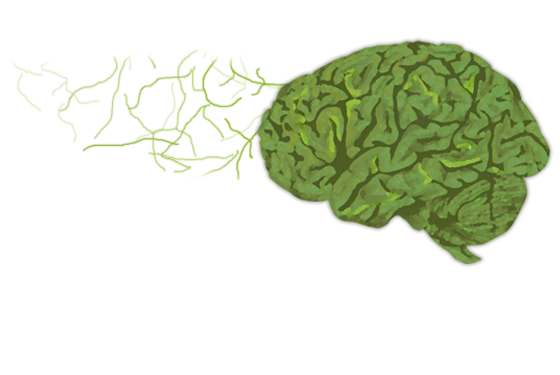ADHD (Attention-Deficit / Hyperactivity Disorder)
Understanding ADHD and ADHD Testing Services in Knoxville, Tennessee
Tennessee Neuropsychology is your source for comprehensive psychological testing and evaluation services for Attention-Deficit/Hyperactivity Disorder (ADHD) in Knoxville, Tennessee. Our experienced professionals are dedicated to helping individuals of all ages gain a deeper understanding of ADHD and providing personalized support and intervention strategies.What is ADHD?
ADHD is a neurodevelopmental disorder that affects both children and adults. It is characterized by persistent patterns of inattention, impulsivity, and hyperactivity that interfere with daily functioning and can impact academic, work, and social activities.
Types of ADHD
There are three primary types of ADHD:
Predominantly Inattentive Presentation: Individuals with this type primarily struggle with attention, focus, and organization. They may appear forgetful and have difficulty sustaining attention on tasks.
Predominantly Hyperactive-Impulsive Presentation: This type is characterized by hyperactivity and impulsivity. Individuals may have difficulty staying still, interrupt others frequently, and act impulsively without thinking of consequences.
Combined Presentation: This type includes symptoms of both inattention and hyperactivity-impulsivity.
The Importance of ADHD Testing
Accurate and early assessment of ADHD is crucial for effective intervention and support. ADHD testing can help:
Differentiate from Other Conditions: ADHD symptoms may overlap with other mental health conditions or medical issues. Testing can help rule out alternative explanations for symptoms.
Identify Specific ADHD Type: Testing can help identify the specific type of ADHD, which informs the development of tailored intervention strategies.
Assess Impact on Functioning: Testing evaluates how ADHD symptoms affect various aspects of life, such as academic or work performance and social interactions.
Guide Treatment Planning: Understanding an individual’s unique ADHD profile enables the development of personalized treatment plans that address specific challenges.
What Conditions Are Sometimes Misdiagnosed as ADHD?
Due to the fact that ADHD presents with symptoms such as inattention, impulsivity, and hyperactivity, there are several other conditions that can present with similar symptoms, leading to potential misdiagnoses. It is essential to rule out these alternative conditions to ensure accurate diagnosis and appropriate treatment. Here are some conditions often mistaken for ADHD:
- Anxiety Disorders: Children and adults with anxiety disorders may exhibit symptoms such as restlessness, difficulty concentrating, and irritability. These symptoms can overlap with those of ADHD, leading to confusion in diagnosis. In anxiety disorders, the underlying issue is excessive worry and fear, while ADHD involves difficulties in attention regulation and hyperactivity.
- Learning Disabilities: Learning disabilities can impact a person’s ability to concentrate and follow instructions, leading to challenges in school or work settings. Since academic struggles are also common in ADHD, learning disabilities may be misinterpreted as ADHD symptoms. However, in learning disabilities, the primary issue lies in processing and retaining information.
- Autism Spectrum Disorders (ASD): ASD and ADHD can share common behavioral traits, such as social difficulties and difficulty with attention. Individuals with ASD may display repetitive behaviors and restricted interests, which can be mistaken for hyperactivity or impulsivity. However, the core features and challenges of ASD are distinct from those of ADHD.
- Mild Traumatic Brain Injury (mTBI): Damage related to mTBI can interfere with processing and responding to sensory information. Some individuals with mTBI may exhibit hyperactive or impulsive behaviors due to sensory seeking or aversive responses. These behaviors can be misconstrued as signs of ADHD, even though the underlying cause is sensory processing issues.
- Bipolar Disorder: Bipolar disorder can involve periods of hyperactivity and impulsivity during manic episodes. This manic behavior may resemble ADHD symptoms, especially in children. However, bipolar disorder also includes mood disturbances, such as periods of depression and mania, which distinguish it from ADHD.
- Sleep Disorders: Inadequate sleep or sleep disorders can lead to symptoms resembling ADHD, such as inattention, irritability, and difficulties with concentration. Improving sleep patterns or addressing underlying sleep disorders may alleviate these symptoms.
Correctly identifying the specific condition underlying a person’s symptoms is vital to providing appropriate interventions and support. Thorough assessment is crucial.
Our ADHD Assessment Process
At Tennessee Neuropsychology, we follow a comprehensive and compassionate approach to ADHD testing. The process typically includes the following steps:
- Initial Consultation: We begin with an initial consultation to gather information about the individual’s history, symptoms, and concerns related to ADHD.
- ADHD Assessment: Our experienced professionals use validated ADHD assessment tools, such as rating scales and questionnaires, to gather information from the individual and their caregivers or teachers.
- Cognitive Assessment: We conduct a cognitive evaluation to assess attention, executive functions, and other cognitive domains that may be affected by ADHD.
- Collaborative Analysis and Report: Our team carefully analyzes the assessment data and prepares a detailed report. The report includes diagnostic impressions, a summary of findings, and recommendations for support and intervention.
- Results-Feedback and Support: We schedule a results session to discuss the evaluation results, answer your questions, and provide guidance on potential interventions and coping strategies.
If you suspect that you or a loved one may have ADHD or are considering ADHD testing, Tennessee Neuropsychology can bring clarity. Contact our team in Knoxville, Tennessee, to schedule an appointment or learn more about our ADHD testing and evaluation services.

